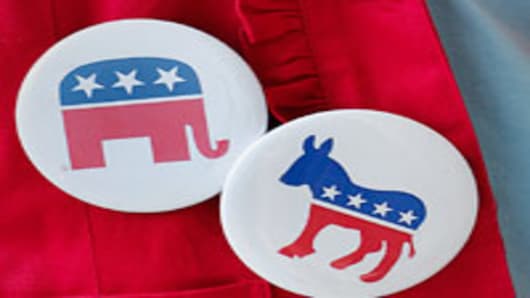Investors’ love affair with exchange-traded funds seems almost unquenchable. Even in the midst of the recent stock market rally, they have been dumping actively managed mutual funds
and snapping up ETFs instead, according to a recent series of data releases from tracking firm Lipper. In response, issuers are flooding the market with new products on an almost-daily basis — there seems no end to the myriad ways one can slice and dice the universe of publicly traded companies in order to bring yet another flavor of new ETF to the market — and providers like Charles Schwab are slashing costs to make them even more appealing.
Little wonder, then, that pundits of all kinds are devising just as many ways to use ETFs to explore various investment themes. Want to know the best ETFs to obtain high yields from overseas stocks? To get the maximum exposure toApple’s stock price movements? To play rising gold prices? There are at least a half-dozen options — and twice the number of ETF analysts eager to tell you all about their relative merits.
So, now that we have only six weeks to go before the presidential election finally takes place (and the hapless residents of “swing” states can call their lives their own again after being bombarded with political ads of all stripes for the last year or so), are there ETFs to pick if you believe one party or another will win the race?
Absolutely, says ETF analyst Todd Rosenbluth at S&P Capital IQ. And those options go far beyond simply going long the S&P 500 if you believe that President Barack Obama will be re-elected. (Historically, the index has generated higher returns under Democratic presidents than under their Republican counterparts — and yes, that may well be more a matter of coincidence than causation, but that never stopped an investor from jumping aboard what they thought was a trend — just think of the whole debate over the stock market’s prospects and hemlines, or the outcome of the Super Bowl every January.)
Some of the suggestions from S&P Capital IQ about sector ETFs are fairly easy to anticipate and understand. For instance, health care. Hospitals may well benefit from a boom in the ranks of those with medical insurance — they will no longer have to foot the bill for treating uninsured patients who show up in emergency rooms with non-emergencies like the flu. Pharmaceutical companies that specialize in generic or lower-cost medications may also benefit, S&P Capital IQ concludes. The ETF to own? Well, the largest is the Health Care Select SPDR, which has big positions in Johnson & Johnson and Abbott Labs — both of which S&P Capital IQ believes are undervalued, high-quality stocks.
Equally unsurprising is the notion that the financial services sector would fare better under the more benign, hands-off approach of a Romneyadministration. That election outcome would mean a new team of regulators — and a high probability of a far more lax interpretation of some of the laws passed in the wake of the financial crisis, such as the Dodd-Frank Act. So if you think Romney has the edge, S&P Capital IQ suggests tilting in favor of ETFs like the iShares S&P Global Financials Sector Index Fund, which has significant holdings of many large financial institutions, including those that have complained that Dodd-Frank’s provisions are a major headwind to profits.
A few other ideas are somewhat less obvious. For instance, S&P Capital IQ suggests that telecom services stocks may thrive under Obama, who has been willing to help carriers expand their broadband networks, while transportation stocks could benefit from a Romney administration that encourages the development of shale oil and gas reserves and that doesn’t combat the coal industry. Railways, for instance, ship coal as well as the pipe and other construction materials required by the energy industry seeking to extract reserves from shale deposits.
Sadly, as with so much else in politics, there’s little way to hedge your bets here. S&P Capital IQ concludes that the sectors helped by one party’s victory at the polls will be hurt by the triumph of that party’s adversaries. “This is largely a zero-sum game,” they declare — and that makes it riskier to try to play.
True, you can watch the polls and try to play the odds, but you might be just as successful betting outright on the triumph of one candidate or another on Intrade. Moreover, whether the Obama administration is reinstated for another four years or Romney’s team takes power, the odds are that their policies, as they take shape, will have an impact on stock performance (as opposed to market sentiment) only over the longer haul.
The scenario under which we all win? When the verdict is in, the dust has settled, and Congress can get back to crafting some kind of solution — however temporary — to the looming “fiscal cliff.” Removing uncertainty and nervousness is the best possible outcome of this election for investors of all political stripes. (Read More:'Fiscal Cliff' Fallout Winners: KBW)


